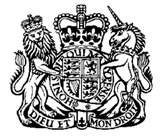Land at Palace Avenue, Kensington (Acquisition of Freehold) Act 2002
2002 CHAPTER ii
An Act to authorise the trustees of the Imperial Tobacco Pension Fund to acquire the freehold of land forming part of the Royal Garden Hotel, Kensington; and for connected purposes.
[25th June 2002]
WHEREAS—
The Royal Garden Hotel, Kensington, (“the hotel”) is an asset of the Imperial Tobacco Pension Fund and is held for that purpose by Imperial Tobacco Pension Trustees Limited and Imperial Investments Limited (“the companies”):
The hotel abuts The Old Barrack Block of Kensington Palace:
The land comprising the north-east corner of the hotel building and the land on which the rear boundary wall (together “the demised land”) is constructed were formerly Crown land forming part of the grounds of Kensington Palace:
Kensington Palace was originally acquired by His Majesty King William III and is now vested in the Secretary of State for Culture, Media and Sport who holds the land subject to the Crown Lands Act 1702 (c. 1) (“the 1702 Act)”:
Section 5 of the 1702 Act prohibits any disposition of an interest in land to which it applies other than a lease for a maximum term of 31 years or referable to three lives:
The companies hold the demised land under a head lease dated 29 June 1987 and a supplemental lease dated 27 June 1994:
The companies wish to acquire the freehold interest in the demised land and certain rights attaching to the demised land:
The 1702 Act prohibits the Secretary of State from selling the freehold of the demised land to the companies:
It is expedient that the companies should be authorised to give effect to any agreement reached with the Secretary of State for the sale of the demised land:
A plan showing the extent of the demised land has been deposited in the Office of the Clerk of the Parliaments and the Private Bill Office in the House of Commons and with the Chief Executive of the Royal Borough of Kensington and Chelsea and the Chief Executive of the Greater London Authority:
The objects of this Act cannot be attained without the authority of Parliament:
May it therefore please Your Majesty that it may be enacted, and be it enacted, by the Queen’s most Excellent Majesty, by and with the advice and consent of the Lords Spiritual and Temporal, and Commons, in this present Parliament assembled, and by the authority of the same, as follows:—
1Short title
This Act may be cited as the Land at Palace Avenue, Kensington (Acquisition of Freehold) Act 2002.
2Interpretation
In this Act—
“the 1702 Act” means the Crown Lands Act 1702 (c. 1);
“the companies” means Imperial Tobacco Pension Trustees Limited and Imperial Investments Limited, and includes the successors in title of either of those companies as lessee under the leases and any subsidiary of any of the companies;
“the demised land” means the two parcels of land demised by the leases, the areas of which are shown (for the purpose of identification only) respectively edged red and coloured green on the deposited plan;
“the deposited plan” means the plan deposited in connection with this Act;
“the hotel” means the Royal Garden Hotel, 2–24 Kensington High Street, London W8 4PT;
“the leases” means—
(a)the lease dated 29 June 1987 between the Secretary of State for the Environment (1) and Imperial Group Pension Trust Limited and Imperial Group Pension Investments Limited (2); and
(b)the supplemental lease dated 27 June 1994 between the Secretary of State for National Heritage (1) and Imperial Group Pension Trust Limited and Imperial Group Pension Investments Limited (2),
relating to the demised land.
3Acquisition of the demised land
(1)The companies may, with the agreement of the Secretary of State and on such terms as may be agreed with him, acquire—
(a)the freehold reversion in the demised land; and
(b)the freehold right for the hotel (or any part) to overhang the grounds of Kensington Palace.
(2)Nothing in section 5 of the 1702 Act shall apply to any disposal of the demised land under subsection (1) above.

